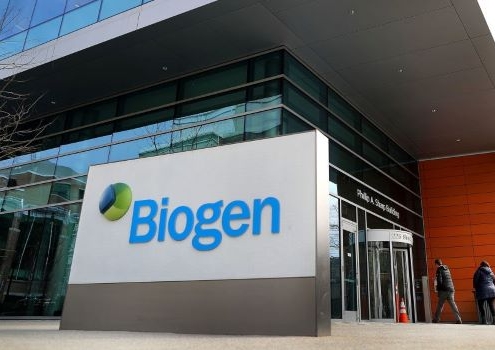Medicare to Limit Coverage of Biogen’s Aduhelm and Similar Drugs
Medicare to Limit Coverage of Biogen’s Aduhelm and Similar Drugs
Only a day after Biogen executives defended their controversial drug for Alzheimer’s, Aduhelm, at the J.P. Morgan Healthcare Conference, the Centers for Medicare and Medicaid Services (CMS) issued their draft national coverage decision for the drug. And it’s not good news for the company, which was reflected by company shares taking an 8.1% dive shortly after the announcement.
CMS indicated it would cover the cost of these drugs and any necessary scans — but only “if they are enrolled in qualifying clinical trials.” CMS indicated that those randomized controlled trials would need to “demonstrate a clinically meaningful benefit in cognition and function.”
Aduhelm was approved in June 2021 by the U.S. Food and Drug Administration (FDA) under an accelerated approval pathway based on biomarker evidence that the drug cleared beta-amyloid, one of two abnormal proteins found in the brains of Alzheimer’s patients. The other is tau. Clinical benefit, meaning improved cognition and memory, or at least slowing of deterioration of memory and cognition, was not as convincing and under the accelerated approval pathway, Biogen was required to conduct a post-marketing Phase IV clinical trial to demonstrate clinical benefit.
In mid-December 2021, Biogen had announced that, along with its development partner Eisai, it planned to submit the final protocol for the Phase IV trial to the FDA in March 2022 and begin patient screening in May. They expected to enroll more than 1,300 early Alzheimer’s patients. The trial’s clinical endpoint will be scheduled for 18 months after treatment initiation, with a likely total completion four years after beginning the study.
To date, insurance companies have been slow to pay for the drug, with few calling it “medically necessary” and some calling it experimental, despite FDA approval. The CMS decision will likely give insurers even more opportunity to resist paying for the treatment.
Although a blow to Biogen, the decision also has implications for the many other biopharma companies currently developing drugs against Alzheimer’s that focus on clearing beta-amyloid. Part of the CMS statement noted that monoclonal antibodies that target amyloid will be subject to “coverage with evidence development,” meaning that they, too, would have to design their clinical trials to be more focused on clinical improvement, potentially minimizing the likelihood of using accelerated approval pathways. Other companies hot on the Alzheimer’s trail are Eli Lilly, with a drug similar to Aduhelm called donanemab, and Roche.
The CMS announcement is preliminary. It will be followed by a 30-day public comment period. A final decision is expected in March or April.
Currently, more than 6 million people in the U.S. are diagnosed with Alzheimer’s. Most of those patients are old enough to receive Medicare. The original price of Aduhelm was $56,000 per patient per year. In late December, in an effort to improve the uptake of the drug, Biogen cut the price in half, to $28,200.
CMS Administrator Chiquita Brooks-LaSure stated, “Alzheimer’s disease is a devastating illness that has touched the lives of millions of American families. Throughout this National Coverage Determination process, CMS has been and remains committed to providing the American public with a clear, trusted, evidence-based decision that is made only after a thorough analysis of public feedback on the benefits and risks of coverage for Medicare patients.”
Brooks-LaSure went on to say, “CMS has proposed an evidence-based coverage policy after experts reviewed all relevant publicly available evidence and feedback received from stakeholders. Before finalizing this proposal, we will have more opportunities to hear from people with Medicare living with mild cognitive impairment due to Alzheimer’s disease or mild Alzheimer’s disease dementia, their family members and caregivers, as well as many other stakeholders, including patient advocacy groups, medical experts, states, payers, and industry professionals.”
BioSpace source:




